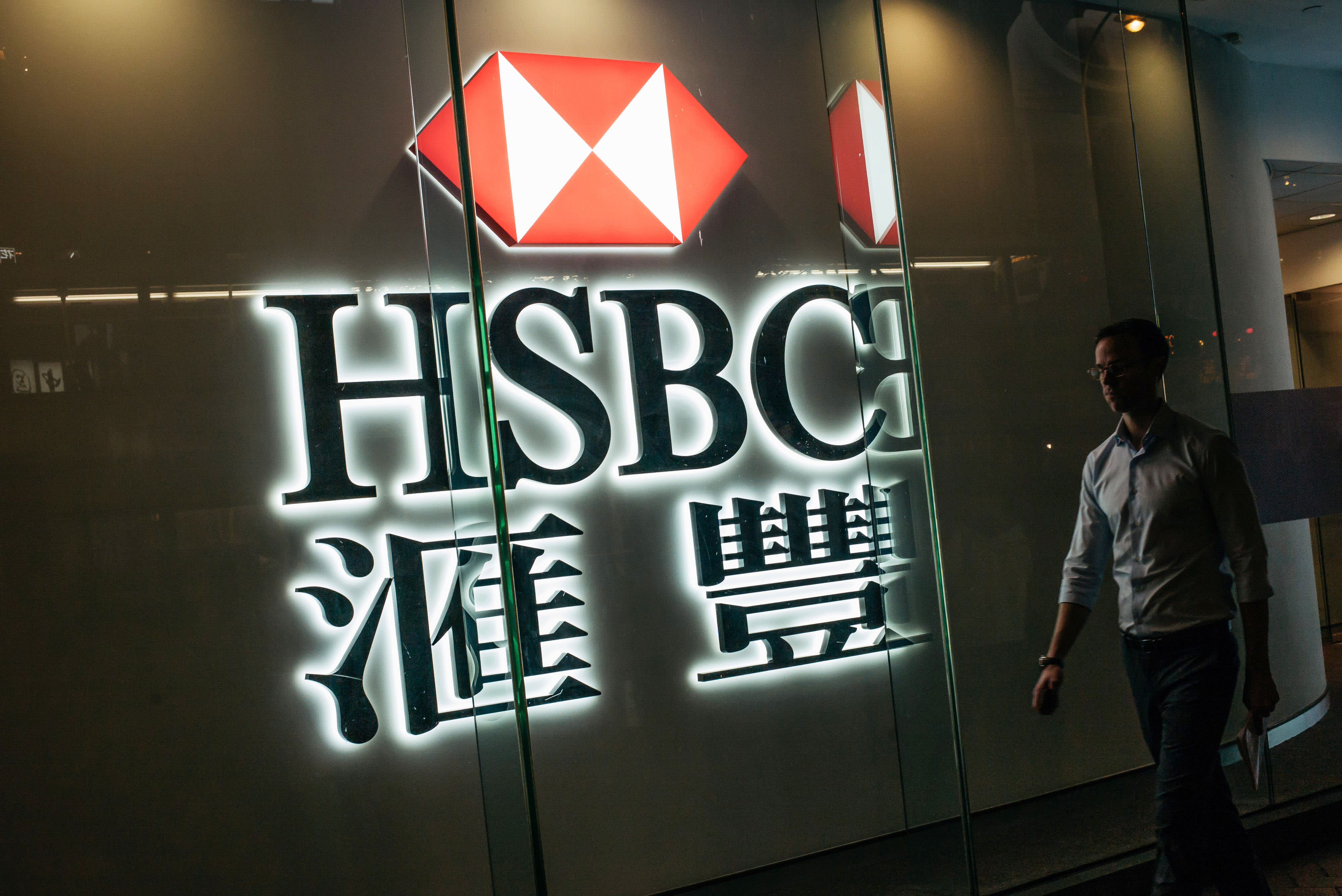
A pedestrian walks past illuminated signage for HSBC Holdings Plc displayed outside a bank branch in the Central district of Hong Kong, China.
Anthony Kwan | Bloomberg | Getty Images
HSBC on Monday reported a 65% year-over-year plunge in pre-tax profits for the first six months of 2020 as it set aside more funds for potential loan losses that could come as a result of the coronavirus pandemic.
The bank, Europe’s largest by assets, reported profit before tax of $4.32 billion in the first half of this year — down from $12.41 billion that was reported a year ago and missing the estimated $5.69 billion that HSBC had compiled from analysts.
The bank’s reported revenue fell by 9% to $26.7 billion during the same period. That’s slightly above analysts’ expectations of $26.41 billion, according to estimates compiled by HSBC.
HSBC shares in Hong Kong tumbled by more than 4% when trading resumed after the lunch break.
Chief Executive Noel Quinn said the bank was “impacted by the Covid-19 pandemic, falling interest rates, increased geopolitical risk and heightened levels of market volatility.”
“The first six months of 2020 have been some of the most challenging in living memory. Due to the Covid-19 pandemic, much of the global economy slowed significantly and some sectors drew to a near total halt,” he said in a statement accompanying the earnings release.
He also cited tensions between the U.S. and China as a challenge that the bank has to manage over the long term.
“Current tensions between China and the US inevitably create challenging situations for an organisation with HSBC’s footprint,” he added.
Here are other financial metrics that HSBC reported:
- Credit impairment provisions rose to $6.9 billion due to the coronavirus pandemic and weak economic outlook;
- Net interest margin, a measure of lending profitability, was at 1.43% — down 18 basis points from a year ago due to lower interest rates globally;
- Operating expenses fell by 4% year-on-year to $16.53 billion.
The announcement of the bank’s financial results follows that of other British banks, many of which reported a slide in profits. British bank Standard Chartered, which is also Asia-focused, on Thursday reported a 33% fall in first-half profits to $1.63 billion.
Moving ahead with restructuring
Quinn said that the bank will “accelerate implementation” of a planned restructuring that he announced in February. The CEO said at that time restructuring would include merging its retail banking and wealth management units, cutting its European equity business as well as reducing branch network in the U.S.
The plan that would result in a reduction of around 35,000 jobs, HSBC announced in February.
“We are moving forward with these plans wherever we can,” said Quinn.
“At the same time, our operating environment has changed significantly since the start of the year. We will also therefore look at what additional actions we need to take in light of the new economic environment.”
Jackson Wong, asset management director at Amber Hill Capital, pointed out that the coronavirus pandemic and U.S.-China tensions are two major challenges that HSBC can’t do much to control. That means the impact on the bank’s finances may still have room to run, he said.
“We haven’t seen the bottom … the situation or the business environment now is extremely bad for HSBC,” Wong told CNBC’s “Capital Connection” after the bank’s earnings release.
“They have to face the political issues, the operational issues and also low interest rates environment is going to … remain for a little bit,” he said, adding that he’s not in a hurry to buy HSBC shares even though it’s “extremely cheap” now.
So far this year, HSBC shares listed in Hong Kong and London have plunged by more than 40%, according to Refinitiv data.
Source: CNBC
